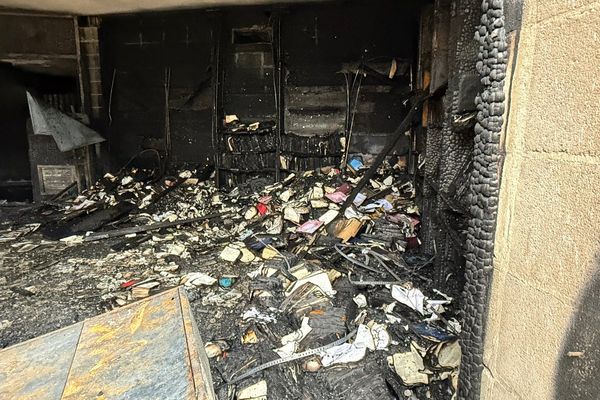
Israel has intensified strikes on Syrian airports to disrupt Tehran's increasing use of aerial supply lines to deliver arms to allies in Syria and Lebanon including Hezbollah, regional diplomatic and intelligence sources told Reuters.
Tehran has adopted air transport as a more reliable means of ferrying military equipment to its forces and allied fighters in Syria, following disruptions to ground transfers.
Israel has long seen its foe Iran's deepening entrenchment in Syria as a national security threat and is widening the scope of its strikes to hit at this new transport method, the diplomatic and intelligence sources said.
The latest strikes on Wednesday night damaged Aleppo airport just before the arrival of a plane from Iran, a commander in an Iran-backed regional alliance who was familiar with the incident told Reuters.
Israel also carried out a strike on Damascus airport, damaging equipment, the government said, the second such attack airport since June when Israeli air strikes on the runway knocked it out of service for two weeks.
A Western intelligence source said that strike had also aimed to prevent the arrival of a cargo plane.
A spokesperson for the Israeli military declined to comment on the reports. Israel has been mounting attacks in Syria for years against what it has described as Iranian and Iran-backed forces that have deployed there during the 11-year war.
Ram Ben-Barak, head of the Knesset Foreign Affairs and Defense Committee, said that Israel's goal in Syria is to prevent Iran's plan "to establish another front against Israel in Syria and strengthen Hezbollah's capabilities in Lebanon."
In an interview with Tel Aviv 102 FM, he added that Israel has "managed to foil this plan in various ways."
'Playing with fire'
Syria's foreign minister responded to Wednesday's air strikes by saying Israel was "playing with fire" and threatening regional security.
A regional diplomatic source told Reuters the strikes marked a shift in Israeli targeting. "They started to hit infrastructure used by the Iranians for ammunition supplies to Lebanon," the source said.
"In the past it was only the supplies but not the airport. Now, they hit the runway," the source added.
That shift has been prompted by Iran's increasing use of commercial airliners instead of ground transfers to shuttle weaponry into Syria’s two major airports, according to a Western intelligence source based in the region and a Syrian military defector familiar with the strikes’ targets.
The intelligence source said Israel’s intelligence-gathering had indicated "more flights were being used" to transport weapons and small military hardware that "can be smuggled in the regular civilian flights from Tehran."
In 2019, the United States sanctioned Mahan Air for transporting weapons and personnel to Iranian forces in Syria.
The Syrian military defector said such hardware typically included small UAV drone components, parts for precision-guided missiles and night vision equipment that are easy to "put in a carton in a civilian plane."
Ground transfers through Iraq, Syria and into Lebanon have been less appealing since local rivalries and turf wars along the Iraqi-Syrian border – where pro-Iran Iraqi militias are based – had been disrupting stock flows, the defector said.
When the Damascus airport was hit in June, Iran and allies began to increasingly use the Aleppo airport for transfers, he added – prompting the strikes there about two months later.
The strikes also provide clues as to where Iran is now deepening is entrenchment, said Nawar Shaaban, an analyst at the Omran Center for Strategic Studies, which focuses on Syria.
While the strikes years ago concentrated on areas around Damascus and military zones in the northwest, their spread to Aleppo and even coastal zones highlight locations from which Israel perceives a strategic threat to emanate, he said.
"The dangerous thing is that when we look at these areas that are being hit, it tells us that Iran has spread out more," Shaban said.
"Every time we see a strike hit a new area, the reaction is, 'whoah, Israel hit there'. But what we should be saying is, 'whoah, Iran is there'."







